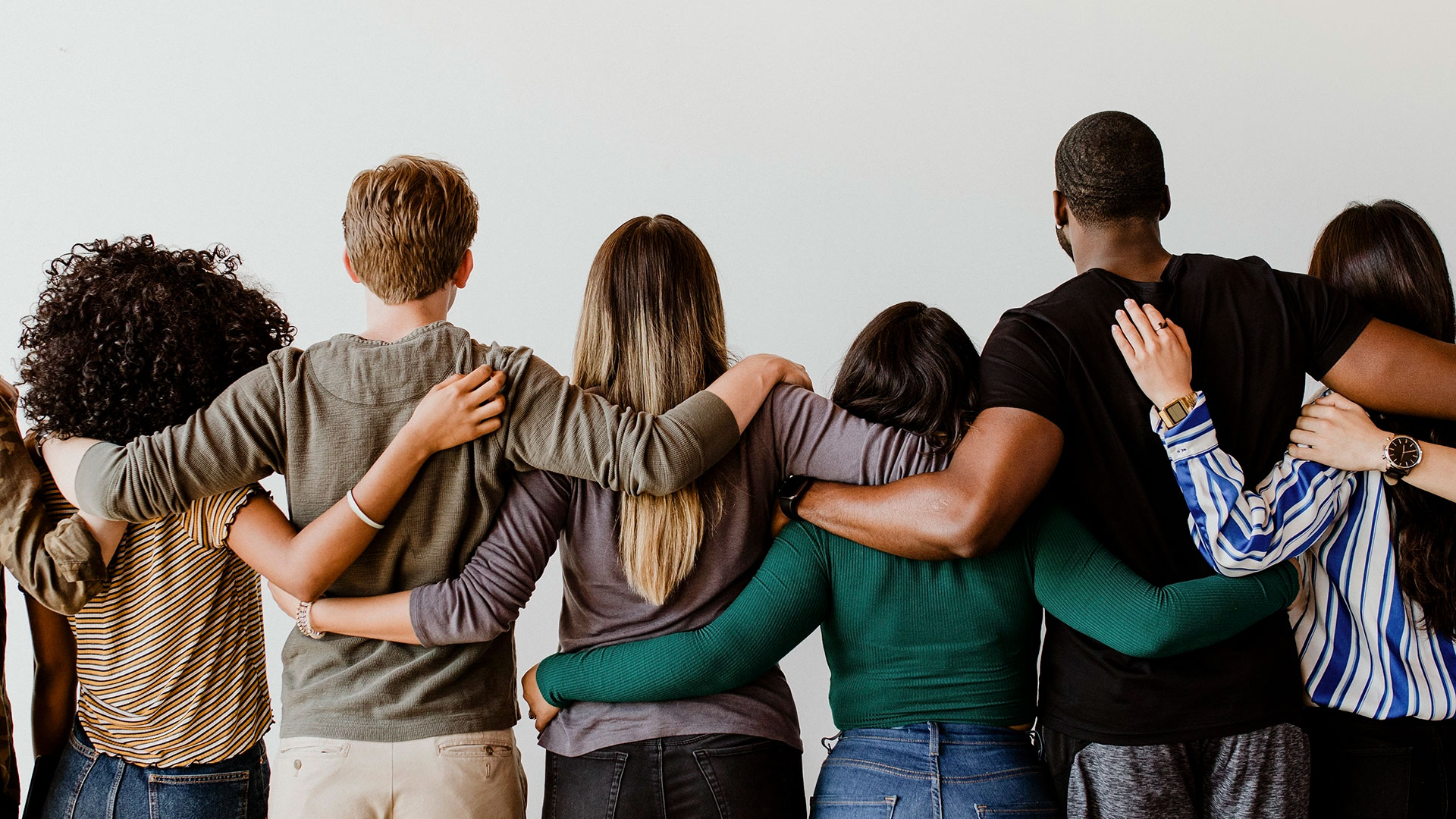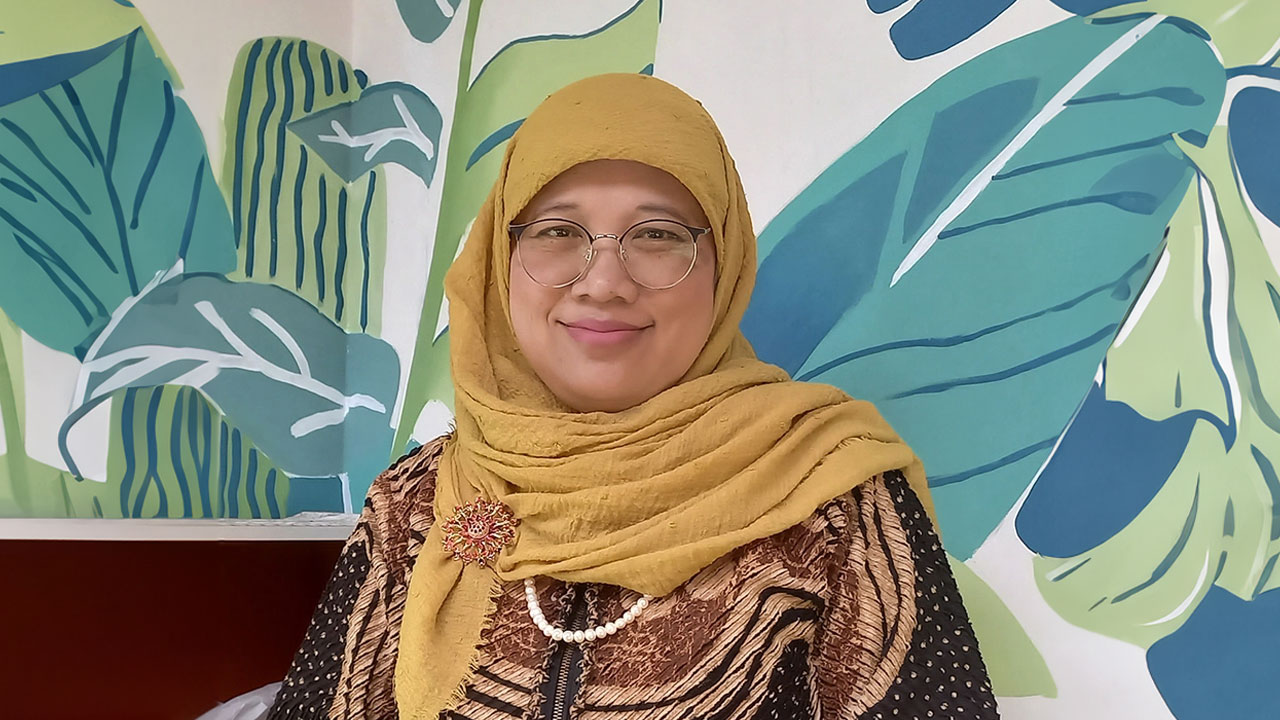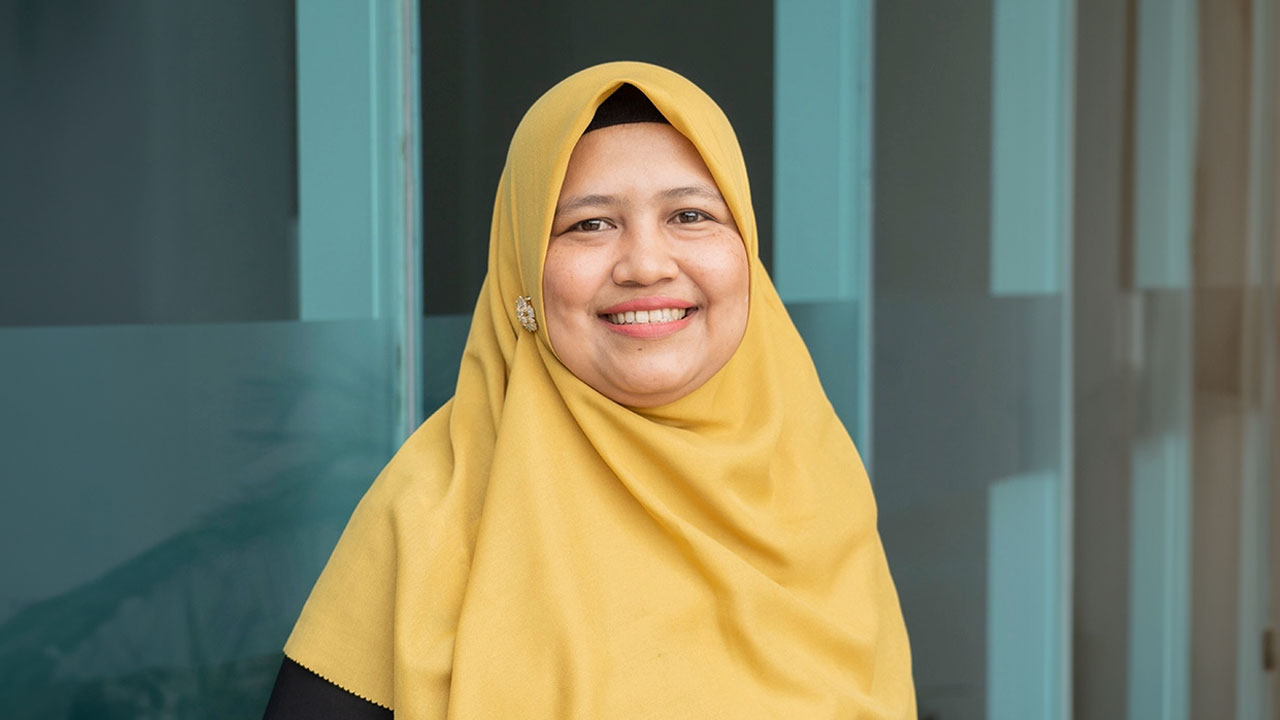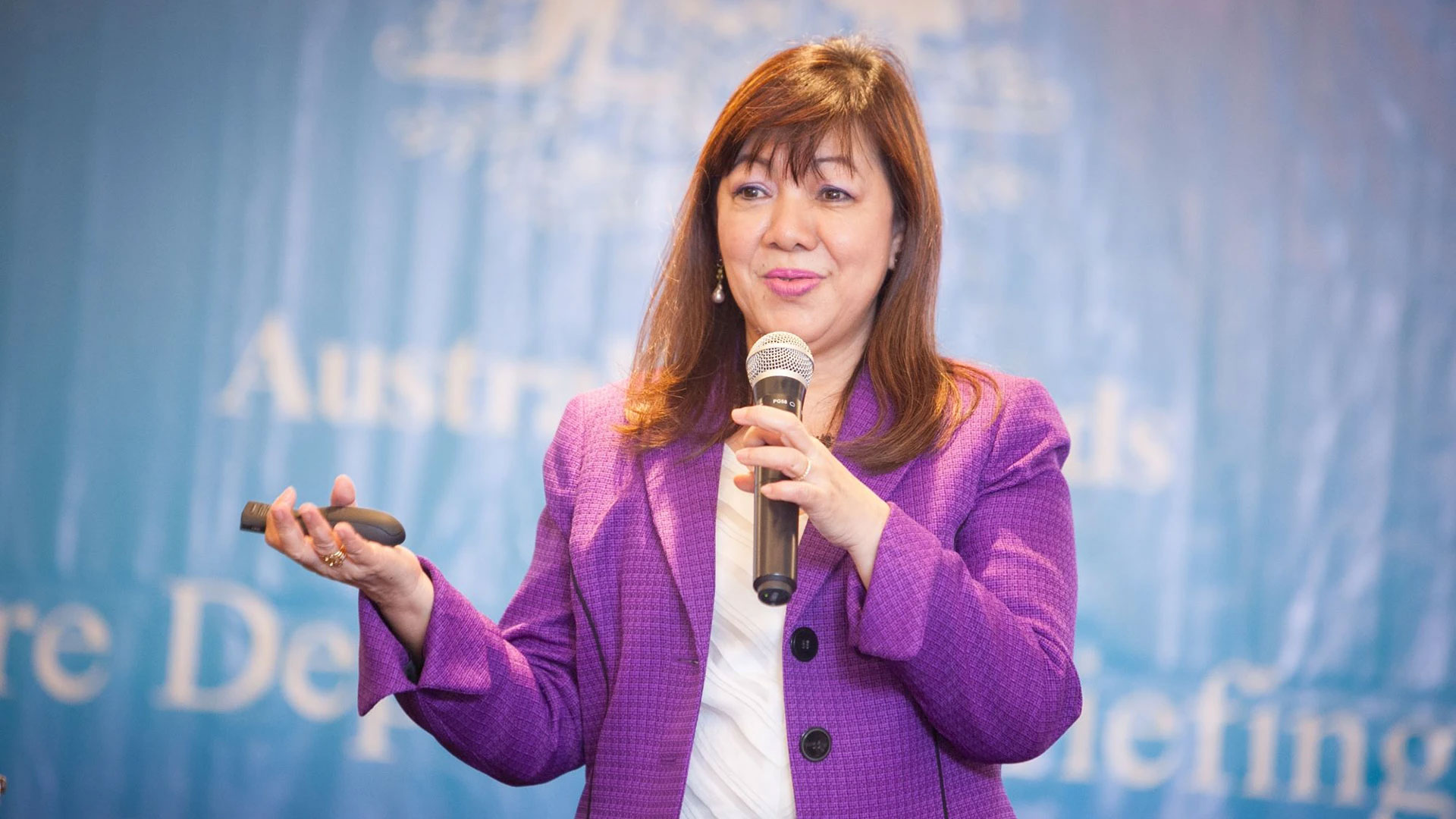
Women’s economic empowerment is central to a gender equal world.
The International Women’s Day theme for 2024 was #InvestInWomen. Without equal access to education, employment pathways, financial services and literacy, how can we ever hope to reach gender equality?
Addressing violence against women in educational institutions
Alimatul Qibtiyah is the Commissioner of Komnas Perempuan. Within this role, her main objective is to eradicate violence against women in educational institutions.

In 2022, there were 355 cases of violence against women in Indonesia’s places of learning that were handled by law enforcement. This includes 37 from within educational institutions that were reported directly to the commission, ranging from sexual violence to intolerant behaviour, such as forcing female students to dress according to the standards of the majority. The figures come from the Annual Report of the National Commission on Violence Against Women (Komnas Perempuan).
Komnas Perempuan takes approaches to create a violence free educational system, including integrating Gender-Perspective Human Rights (HAMBG) values, covering gender justice, non-discrimination and the prevention and handling of sexual violence.
Alim together with Komnas Perempuan developed an instrument that was published in 2022, called “Standard Setting for Violence-Free Areas in Educational Institutions”, also known as the Policy Quality Index (IKK). It assesses how far HAMBG are integrated into students character, curriculum and teachers’ capabilities.
Last year, Alim and Komnas Perempuan colleagues visited three State Islamic Universities to monitor the implementation of the IKK and provide capacity building on sexual violence issues to senior leaders of the universities. Alim stated that after the monitoring, there had been an increase in awareness among the university management regarding sexual violence issues. Komnas Perempuan is currently in the process of developing an indicator similar to the IKK to be applied within the scope of the Ministry of State-Owned Enterprises and State-Owned Enterprises.
Read the full article, originally published via Australia Awards Indonesia.
Supporting the health of women, children and the environment
Ria Oktorina is a Senior Planner at the Regional Development Planning Board of West Sumatra, dedicated to helping new mothers in Padang. Since 2012, she has volunteered to educate mothers on parental health and breastfeeding. She was determined to ease the burden of others after feeling doubted and belittled as a new mum. “I found peace after receiving gratitude and appreciation from mothers who really need our help.”

Ria is active in two community groups, Indonesian Breastfeeding Mothers’ Association (AIMI) West Sumatera and Rangkul Padang. In 2022, she enrolled in the Australia Awards Short Course on Sustainable Agri-Food Systems, run by the University of Adelaide.
During her course and a lecture from social anthropologist Margaret Becker, Ria was inspired to promote and educate mothers in Padang about healthy and sustainable local food for her Award Project. Called Rangkiang Mande, it involved a series of activities to promote healthy local food through a social media campaign, collaboration with the local community, and a workshop attended by mothers and students majoring in agriculture and nutrition. Ria also invited another course participant, Vania Febriyantie of urban farming program Seni Tani, to educate women on developing food resilience by growing their own food locally.
Read the full article, originally published via Australia Awards Indonesia.
Empowering change through inclusion
Gina Naigulevu, Director, Inclusion, Justice and Transformation with Tetra Tech, is a passionate advocate for digital inclusion. She has worked in banking, government and the media, with The Fiji Times, after graduating from the University of the South Pacific with a degree in Computing Science and Information Systems.

She has also worked on the development of the Digital Health Strategy and co-founded a community engagement project that used technology to do street level mapping of pavements that involved persons with disability.
Throughout her journey, she has used questions to learn about others, and educate people about her own experience. ‘It’s part of my nature to not assume what I see is what I get. I come from a background of my mum having an unseen disability, and I was born with a congenital disability—clubfoot, where both of my feet turn inwards.’
Gina is always willing to share her experiences with others so that they can open up to her. ‘I always make an effort to share my experiences with those that I meet so they know they can be open with me’.
Read Gina’s story.
Championing localisation in the Philippines
Milalin Javellana is Program Director, Australia Awards Philippines and a Board Member of Career Executive Service Board.
When I started my career in the Philippines more than thirty years ago, words such as localisation and inclusion were rarely mentioned, and definitely not major priorities within the international development space.
Milalin Javellana, Program Director, Australia Awards Philippines

In 2006, Milalin was the first woman and first Filipino to become a program director of an Australian Government development project. She has been strongly advocating for greater local agency in decision-making delivery and accountability for many years.
“It is about creating systematic change that leaves a legacy within the Philippines, and I am proud to lead a team that facilitates this.”
Lived experience drives Milalin’s advocacy for localisation, providing her with a voice and empowerment in the times when she had to overcome resistance to her advocacy for local agency in decision making. She states “I am committed to passing on these same opportunities to other Filipinos, particularly those who have traditionally been marginalised.”
Read Milain’s story.